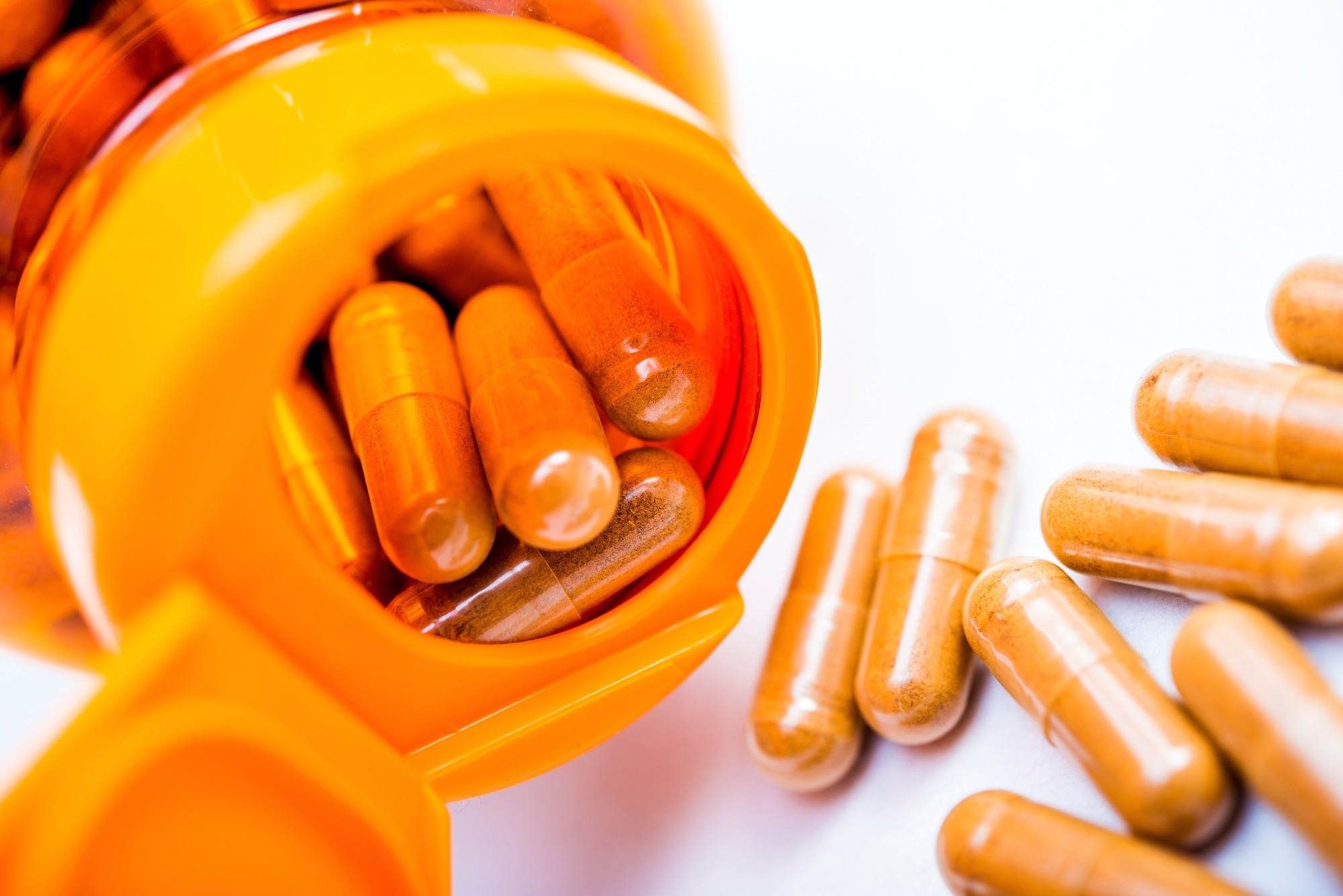While the underlying mechanisms via which cinnamon controls glucose metabolism remains the topic of future research, this study's findings suggest the gut microbiome's profound role in the observed association. The study highlights the benefits of cinnamon and other polyphenol-rich spices in deterring chronic diseases and improving public health.
 Study: Effect of cinnamon spice on continuously monitored glycemic response in adults with prediabetes: a 4-week randomized controlled crossover trial. Image Credit: Virrage Images / Shutterstock
Study: Effect of cinnamon spice on continuously monitored glycemic response in adults with prediabetes: a 4-week randomized controlled crossover trial. Image Credit: Virrage Images / Shutterstock
Cinnamon, what medical potential does it have?
Cinnamon is a spice obtained from the inner bark of several Cinnamomum genus tree species. Despite more than 250 species belonging to the genus, only four are commercially harvested. Traditionally, cinnamon has been used in several global cultures as an aromatic spice and, less often, as an antimicrobial, anti-inflammatory, and food-preserving agent.
Clinically, cinnamon has been investigated for its potential benefits due to it being a rich source of polyphenols, which are assumed to improve glucose metabolism and homeostasis. However, previous studies present widely varying results, with some attesting to its glucose-modulating benefits while others describe no such association. Unfortunately, most studies in the field have suboptimal effect sizes Ess), suggesting the need for an investigation comparing cinnamon and its lack thereof in a clinically controlled setting to elucidate the benefits of the spice.
About the study
The present study comprises a randomized, controlled, double-anonymized crossover trial comprising a 2-week run-in phase and four weeks of intervention (cinnamon supplementation). The study was carried out between March and December 2021 and included adult participants above the age of 18 with clinically confirmed obesity or overweight diagnosis.
Study screening involved a comprehensive metabolic screening and glycated hemoglobin assessment for baseline readings to ensure that participants previously consumed low polyphenol diets. Participants were assigned to the case (cinnamon supplementation) and control (placebo) cohorts, following which the run-in phase commenced. This phase is characterized by two weeks of low polyphenol-containing beige diets (included foods are typically beige in color and rich in simple carbohydrates). Participants were required to abstain from cinnamon and its products during this time.
Following the run-in, the four-week intervention commenced. Four grams of cinnamon (or equivalent placebo) were provided to participants daily in the form of 32 cinnamon capsules (250 g per day). Daily food intake records were maintained, as was dietary compliance. Continuous glucose monitoring (CGM) was performed using an Abbott Diabetes Care flash system. Any discomfort, especially digestive or abdominal, was patient-recorded and reported.
To further unravel the real-world benefits of cinnamon supplementation when the spice is typically consumed as a part of a meal, oral glucose tolerance testing (OGTT) was carried out via an indwelling catheter inserted into participants' forearms.
Study findings
Nineteen participants successfully met inclusion criteria screening requirements and were enrolled in the study. One of these, one participant failed to complete the study (OGTT method-associated discomfort) and was removed from the analyses. Of the remaining 18 participants, 72% were female (m = 13) with mean ages and weights of 51.1 years and 84.6 kg/m2, respectively. Computer-aided evaluations of variables across case and control cohorts found no significantly differing parameters at baseline.
Continuous glucose monitoring (CGM) enabled the total data recording of 694 participant follow-up days and 66,624 glucose readings. Results from this test revealed that peak glucose values reduced significantly in the case-cohort (Δ = 9.56 ± 9.1 mg/dL) compared to controls (Δ = 11.73 ± 8.0 mg/dL).
"The difference in the glucose trajectories between cinnamon and placebo remained strongly significant after adjusting for age, sex, and HbA1c at baseline/FPG at baseline/systolic or diastolic blood pressure at baseline performed in multivariable repeated measurement models (P < 0.001)."
CGM findings were validated and extended by OGTT investigations, which found that the area under the curve (AUC) values in the cinnamon cohort were substantially higher by the end of the study when compared to baseline readings at study initiation. Baseline AUC values were observed to increase from 31,885.1 to 43,592.9 over the four intervention weeks.
Encouragingly, capsule ingestion adherence of both cohorts was high and indistinguishable (97.6 in the cinnamon group and 97.9 in the placebo group), validating the statistical weight of these results. No patients reported any alarmingly adverse side effects during the study, and reported digestive symptoms between cohorts remained comparatively stable during every follow-up trial.
Conclusions
In the present study, researchers used a double-blind, crossover trial of 18 obese and overweight American adults to investigate any potential association between cinnamon consumption and glucose homeostasis in these individuals. Study findings revealed that cinnamon substantially lowers fasting blood glucose levels in patients compared to controls (Δ = 9.56 ± 9.1 and Δ = 11.73 ± 8.0 mg/dL, respectively).
Postprandial glucose and insulin concentrations did not differ notably between cases and controls. However, trends in glucose modulation, especially AUC values, changed faster, more dramatically, and beneficially in the case-cohort. While the specific bioactive cinnamon-contained compounds responsible for these observations remain elusive, this study highlights that even 4 g of cinnamon, consumed as garnishing or spice with daily meals, may improve prediabetes status and reduce diabetes risk in overweight individuals.
Journal reference:
- Zelicha, H., Yang, J., Henning, S. M., Huang, J., Lee, R., Thames, G., Livingston, E. H., Heber, D., & Li, Z. (2024). Effect of cinnamon spice on continuously monitored glycemic response in adults with prediabetes: A 4-week randomized controlled crossover trial. The American Journal of Clinical Nutrition, DOI – https://doi.org/10.1016/j.ajcnut.2024.01.008, https://www.sciencedirect.com/science/article/pii/S000291652400008X